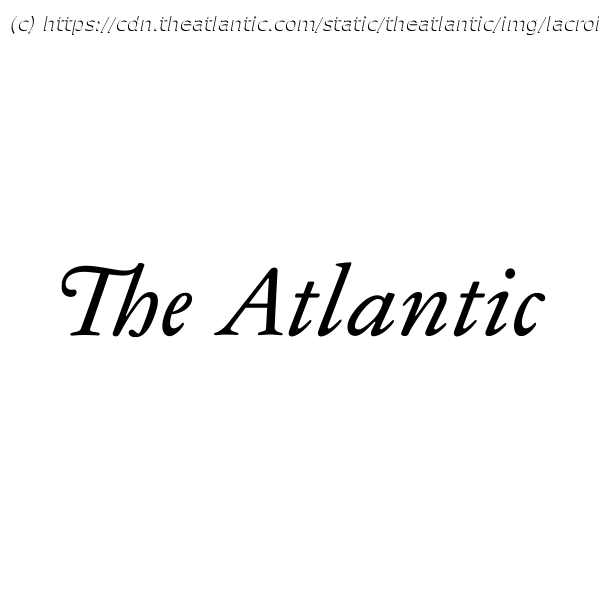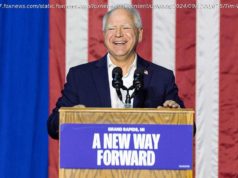If we are to sustain our position as the leader of the Western world, we must understand why one of our signature campaigns resulted in such frustration.
A year after the chaotic scenes at Kabul airport, the outcome of the U.S. withdrawal from Afghanistan is heartbreaking and tragic for many Afghans and devastating for their country. The Afghan government that fell, leading to the return of the Taliban, was maddeningly imperfect, full of frustrating shortcomings, and, in various respects, corrupt. Yet it was also an ally in America’s effort to combat Islamist extremists in Afghanistan and the region, it celebrated many of the freedoms we cherish, and it wanted to ensure them for the long-suffering Afghan people. It was certainly preferable to what replaced it.
Recent decisions by the Taliban, particularly its treatment of women and girls, confirm the trajectory of a regime that seems intent on returning Afghanistan to an ultra-conservative interpretation of Islam. It will be incapable of reviving the Afghan economy, which has collapsed since Western forces withdrew. Although the Kabul strike that killed the al-Qaeda leader Ayman al-Zawahiri was a tremendous achievement by our intelligence and counterterrorism communities, Zawahiri’s very presence in Kabul demonstrated that the Taliban is still willing to provide sanctuary to Islamist extremists. In short, a country of nearly 40 million people—individuals whom we sought to help for two decades—has been condemned to a future of repression and privation and likely will be an incubator for Islamist extremism in the years ahead.
The fact and manner of America’s departure also enabled our adversaries to claim that the United States is not a dependable partner and is instead a great power in decline. In an era in which deterrence is of growing importance, that is not trivial (though our efforts to support Ukraine following Russia’s invasion show that the U.S. can still lead effectively when it seeks to do so). Nor is it trivial that we left behind hundreds of thousands of Afghans who shared risk and hardship with our soldiers, diplomats, and development workers, and whose lives are now endangered, along with those of their family members.
It did not have to turn out this way. I do not mean simply that there were reasonable alternatives to withdrawal that were not adequately considered, alternatives that would have led to better results than what we see today—though there were, and they would have.
Rather, I mean that it did not have to be this way at all; that despite the selfless, courageous, and professional service of our military and civilian elements, and also of our coalition partners—as well as that of innumerable great Afghans—we underachieved in Afghanistan. In fact, across our 20 years there, we made significant mistakes and fell short over and over again. Had we avoided, or corrected, enough of our missteps along the way, the options for our continued commitment to Afghanistan would have been more attractive to successive administrations in Washington—and might have precluded withdrawal entirely. Afghanistan was not going to transform into a prosperous, thriving, liberal democracy in the foreseeable future. But its prospects certainly were brighter than they are today. Moreover, as a result of our intervention in 2001, we had a responsibility to continue to help it along that path, however long it took.
What follows is not an exercise in relitigation or finger-pointing (though, inevitably, there will be some of that). Neither is it about absolving myself. I was as much a part of our efforts, in the middle years at least, as anyone else.
Instead, I want to contribute to an effort to learn from our experience in Afghanistan. Faced with a revanchist Russia, a more assertive China, an aggressive Iran, a dangerous North Korea, and Islamist extremists in various places around the world, more and more of our allies and partners look to us for resolve, a commitment to fight aggression and terrorism, and support of the democratic values we hold dear. We can provide the leadership needed only if we learn from our past endeavors.
We were right to invade Afghanistan when we did. Eliminating the sanctuary in which al-Qaeda planned the 9/11 attacks was essential to our national security, and toppling the Taliban showed our enemies that we would not tolerate those who provided a haven for terrorists who targeted our country and killed our countrymen. Our subsequent efforts also proved that we believed in the promise of freedom and democracy, and that those values are universal, however difficult it may have been to implement them in the shadow of the Hindu Kush.
But even as we acknowledge the good work that we did in Afghanistan, and recognize the sacrifice that it entailed, we must accept as well the shortcomings of our campaign there and appreciate what we got wrong, for how long, and at what cost. Ultimately, if we are to sustain our position as the leader of the Western world, we must understand why one of our signature campaigns resulted in such unending frustration.
Our foundational mistake was our lack of commitment. In essence, we never adopted a sufficient, consistent, overarching approach that we stuck with from administration to administration, or even within individual administrations.
We were reluctant even at the outset of the intervention in Afghanistan, in late 2001, to establish a substantial military headquarters on the ground. And even after we did so the following year, we quickly shifted focus to Iraq. By the time attention and resources were once again truly devoted to Afghanistan, some eight years after the initial invasion, we had missed an opportunity to take advantage of a protracted period of relatively little violence in Afghanistan, during which time the Taliban and other insurgent elements regrouped in Pakistan and then Afghanistan, and during which we could have made considerably greater strides in developing Afghan forces and institutions than we did.
As Admiral Mike Mullen often observed after becoming Chairman of the Joint Chiefs of Staff in 2007, “In Iraq, we do what we must; in Afghanistan, we do what we can.” Frankly, “what we can” was never remotely enough. In fact, when I conducted an assessment of the situation in Afghanistan at Secretary of Defense Donald Rumsfeld’s request in September 2005, I was struck by how far behind Iraq the efforts in Afghanistan already were, even though we had toppled the Taliban regime more than 15 months prior to our invasion of Iraq.
After Barack Obama took office and thoroughly reviewed the situation in Afghanistan, we did finally get the inputs roughly right for the first time, though even when the president announced a buildup of forces, he also outlined when the drawdown would begin. Regardless, by late 2010, we had finally established the right big ideas and overarching strategy; deployed reasonably sufficient forces to halt and roll back the Taliban’s momentum; increased civilian capacity to complement our military efforts; established the right organizational structures; made much-needed adjustments to the push to train Afghan forces; developed a structured program to transition select Afghan districts to Afghan control; commenced an organized effort to reconcile with the Taliban rank and file while negotiations were pursued with the Taliban leadership; and took on the issues of civilian casualties, corruption, and cultivation of illegal narcotics, among other problems.
Unfortunately, this period lasted less than a year. In June 2011, the White House released the details of the drawdown in Afghanistan that the president had previously outlined would begin that summer. As it became clear that we could not deliver a knockout blow to the Taliban and other insurgent and extremist groups, we decided that withdrawal was preferable to a lengthy, frustrating commitment. Basically, we reverted to what became our pattern in Afghanistan: not long-term nation building, but repeated exit seeking, even though nation building did continue.






